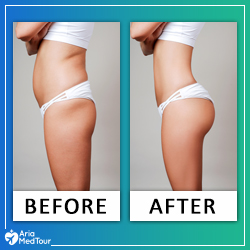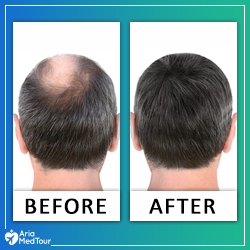Owing to the advances in medicine and healthcare technology, you don’t have to feel pain during your cosmetic surgery! While anesthesia is an important factor in all major surgeries, the use of anesthetics in cosmetic procedures has a significant impact on the overall experience of patients, both during and after the operation.
Risks for any possible surgical complications can be greatly reduced by knowing about the different types of anesthetics and their effects on your body. In this article, you’ll learn everything you need to know about anesthesia in beauty surgeries.
Quick facts about anesthesia
Anesthesia might sound fancy, but it’s not at all complicated to grasp! Your surgeon or their assistants will tell you everything you should know about anesthesia before your operation, but just in case, here are the basics:
- There are several types of anesthesia and not all of them render the patient unconscious.
- Anesthesia is usually safe and with new developments, chances of complications are almost non-existent.
- People who smoke need more anesthesia to undergo surgery than nonsmokers.
- It is possible to wake up in general anesthesia but the odds of that happening are extremely rare.
- General anesthesia might temporarily distort your memory, but the effects will wear off after a few days.
- Side effects of anesthesia may include dizziness or nausea.
- You should avoid eating and drinking after midnight on the night before your surgery.
- Certain medications and herbal supplements might tamper with anesthesia during surgery.
- Pre-op evaluation of the patients and consultation with your surgeons will help you experience a smooth and complete recovery.
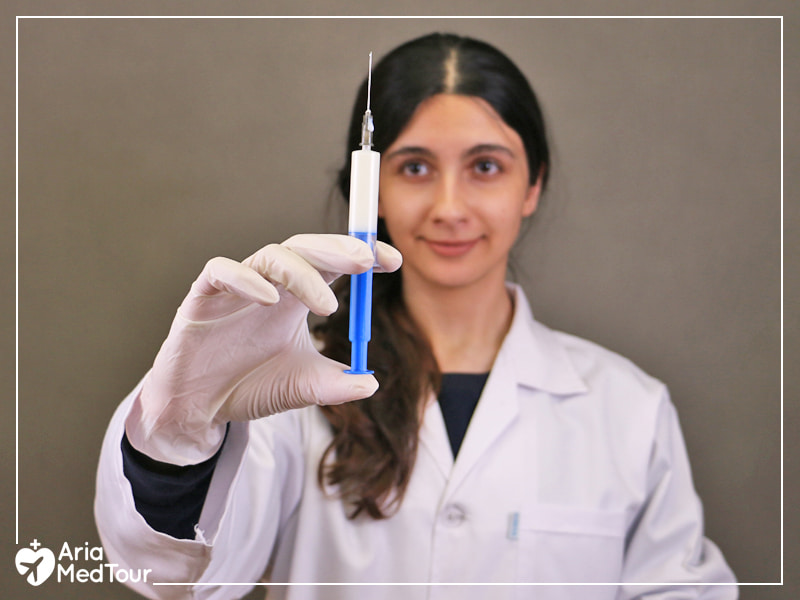
What is anesthesia and how does it work?
Anesthesia is a medically induced state of controlled unconsciousness or loss of sensation in particular body parts for patients that undergo surgery.
In anesthesia, you won’t feel any pain or sensations. This makes the process of surgical operations bearable for patients and technically feasible for surgeons. Using anesthetics, narcotics, sedatives, and neuro-blocking drugs, your surgeon will put you under anesthesia. Under general anesthesia, you will be completely unconscious. Sometimes, though, regional or local anesthesia will numb a certain area in your body and the doctor will proceed with the operation without the patient feeling any pain.
Anesthesia in plastic surgery involves a lot of variables and based on the operation you’re having, your doctor will recommend the best option. An anesthesiologist, who is a trained specialist in anesthesia, will monitor your body while you are under anesthesia and manage your vital signs throughout the operation.
Types of anesthesia
There are several types of anesthesia and application methods. Based on your medical history, the type of operation you’re having, your surgeon’s recommendation and preference, and your own preference, the most suitable option is used.
You should note that the risks and benefits of each technique will be discussed with you by your surgeon before the operation. Pre-op education of the patients is just as important as the surgical process itself, if one wishes to avoid complications.
Having said that, it is still recommended to educate yourself about the different types of anesthesia as much as possible before your surgery, which is why we’ve explained them in detail below.
Local anesthesia (conscious sedation)
For less invasive procedures, surgeons administer a medicine that numbs a small area of your body before the operation. Whereas general anesthesia (discussed below) renders you unconscious and comes with unwanted side effects such as nausea and vomiting, local anesthesia is much simpler and requires less preparation time.
Local anesthetics contain narrow class of compounds which reduce the risks of complications. Unless you develop an allergic reaction to a certain type of medicine, it is very rare to experience complications with local anesthesia, widely used for performing skin biopsies, repairing a broken bone or stitching a wound.
Cosmetic surgeries involving parts of face, neck, hair implants, and liposuction of small areas are usually done with local anesthetics. You’ll be awake, and the anesthesiologist will inject regular doses of sedatives that alleviate your discomfort through the surgery.
When it comes to anesthesia in cosmetic surgery, communication is an important aspect of your experience. You will need to interact with your surgeon and anesthesiologist in every step of the way to make sure that you are experiencing a smooth and uncompromised surgical operation.
Regional anesthesia
This type of anesthesia will numb a large part of your body with the injection of a local anesthetic close to nerves. Spinal anesthesia, epidural anesthesia, and other nerve blocks are used when local anesthesia is not enough and patients need to lose sensation from the waist down while maintaining consciousness.
These anesthetics are mostly used in childbirth, which controls pain in labor and delivery. Spinal blocks are a stronger type of regional anesthesia, which are widely utilized for more complicated procedures like C-sections.
Regional anesthesia is absolutely safe and much like its local counterpart doesn’t come with complications and side effects of sedation or general anesthesia.
Intravenous sedation
Anxiety and stress can prove to be detrimental to the surgical process, which is why anesthesiologists use intravenous sedation (IV sedation), also known as monitored anesthesia care (MAC), as a means to make sure the patients are relaxed.
You will be awake and can verbally communicate with your surgeon, but you will remember little to nothing from your surgery. Intravenous sedation can also be done using pills and inhaled gas, but doesn’t come with complications associated to general anesthesia. Unless you develop an allergic reaction to a certain type of sedative or experience vomiting, the adverse effects will wear off in 24 hours with the help of medicine prescribed by the anesthesiologist.
The primary alternative to IV sedation is general anesthesia, but that is usually used for surgeries that are intolerably painful or make the operation unfeasible for the surgeons without unconsciousness or lulled bodily functions.
General anesthesia
For major surgeries that take a long time to be completed or involve significant blood loss, general anesthesia is the go-to method of sedation.
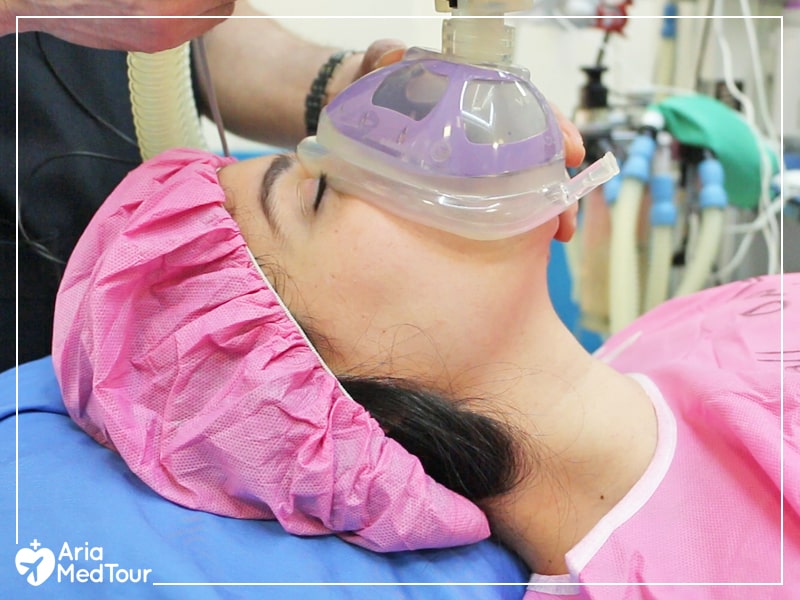
General anesthesia is one of the common anesthesia methods utilized in plastic surgery.
Major operations such as hip replacements, heart and neurological surgeries, and many procedures to treat cancer require general anesthesia. The anesthesiologist will administer the medicine via a mask or an IV injection into your vein.
Under general anesthesia, you will be completely unconscious and your bodily functions slow down. The anesthesiologist will monitor and manage your vitals throughout the operation. Even after the operation, you may experience side effects such as nausea, vomiting, and short-term memory loss. The anesthesiologist is there to make sure that you experience a smooth recovery and don’t come across any complications as a result of anesthetics.
You cannot drive after waking up from general anesthesia, so it is important to have someone around that can drive you home or take care of you after major surgeries that involve unconsciousness through sedation.
Which type of anesthesia is used in plastic surgeries?
The development of anesthesia has paved the path for many cosmetic operations which were not feasible before. The advanced post-operative monitoring capabilities of anesthesiologists also contribute to the early prevention of any complications that might occur as a result of anesthetic drugs.
Anesthesia in plastic surgery has undergone many breakthroughs and innovations over the years, all contributing to the overall safety and recovery of the patients. Simply put, if you’re thinking about undergoing a cosmetic procedure, anesthesia should no longer be a cause for concern.
Based on your medical history and the type of cosmetic surgery you’re having, the anesthesiologist will recommend a certain type of anesthesia that will minimize the risk for complications and ensure your smooth operation.
Anesthesia in rhinoplasty
Nowadays, rhinoplasty is one of the most common types of cosmetic surgeries performed, used both as a way to improve appearance or address breathing problems.
is not a complicated procedure, and your surgeon will perform it with intravenous sedation or general anesthesia. Depending on the nature of the procedure, the anesthesiologist will pick the best choice.

Rhinoplasty is typically performed under general anesthesia.
While most surgeons prefer intravenous sedation, as it comes with less complications, some may think that general anesthesia is safer. Intravenous anesthetics result in less bleeding and nausea after the surgery and the lack of vomiting makes sure the patient experiences less swelling and pain.
Note that vomiting can lead to severe bruising and tissue distortion, which may ruin the result of your cosmetic surgery, but that shouldn’t be a cause for worry if your surgeon decides to put you under general anesthesia. In fact, the use of narcotic-free anesthetics will greatly reduce the chances of nausea after the operation.
Anesthesia in facial plastic surgeries
Chin and cheek implants, facelift, eyelid surgery, brow lift, lip augmentation, and other facial reconstruction operations all require anesthesia for safety and comfort.
Local anesthesia plays a key role in aesthetic facial surgeries. After being orally sedated by the surgeon (who also plays the role of your anesthesiologist in most cases) you will be put under local anesthesia in the part of your face that requires surgery or reconstruction.
The idea is to use the least amount of anesthetics to achieve loss of pain sensation so that the chances for complications would be reduced and patients would experience a smooth recovery after the operation.
Anesthesia in body sculpting procedures
Body contouring procedures such as tummy tuck , liposuction in several areas of the body, buttock lift, and other body contouring procedures are more invasive and require extensive monitoring both before and after the surgery.
Most body sculpting procedures require general anesthesia and total lack of consciousness to be performed. Pulmonary, cardiovascular, and other metabolic signs should be monitored when the patient is under anesthesia and measures should be taken in order to avoid complications after the operation.
Read more: 6 common myths about liposuction
Tumescent anesthesia (which is a method of delivering local anesthesia) was first used in liposuction, but has since been utilized for other body sculpting procedures. Tumescent anesthesia is relatively safe and will make your skin tissue firm, which is required for some of the more invasive surgical procedures.
Anesthesia in hair transplant procedures
While a hair transplant procedure takes a long time to be completed, the patients are always wide awake and relatively aware of what is going on around them. Your anesthesiologist will deliver mild sedation to help you remain relaxed during the operation and local anesthetics will be applied for the procedure itself.
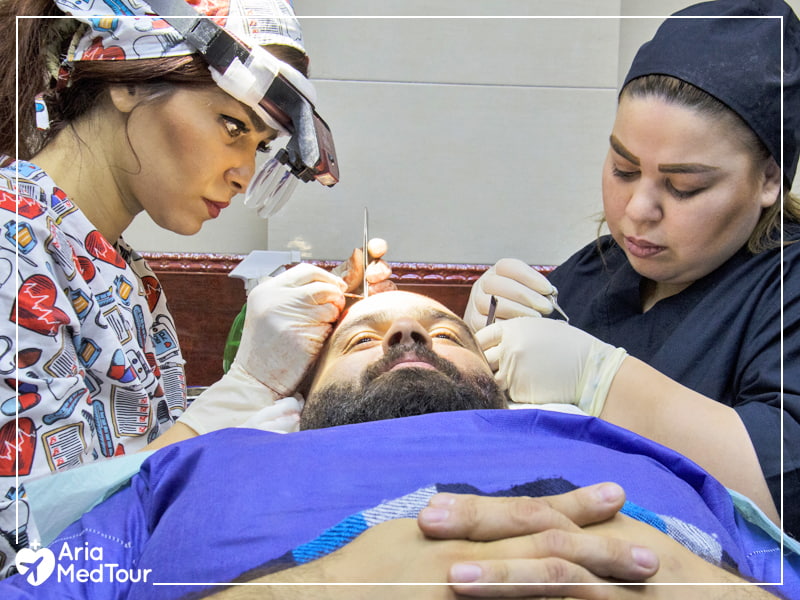
Hair transplantation surgery is usually done under local anesthesia, meaning the patient is awake during the surgery and the scalp is numbed to make the procedure comfortable for them.
Local anesthesia in hair transplant operations comes with no side effects and unless patients have a history of allergic reactions to some of the applied anesthetics and agents, the chances of complications both during and after the surgery are extremely rare.
Pre-anesthesia evaluation of patients
Plastic surgery is now more popular and widely available in many corners of the world. One reason for this surge of popularity is the development of advanced anesthesia for cosmetic procedures which make up for the inconvenience and complications that used to follow the usage of old anesthetic agents.
With this broad availability, the pre-op evaluation of patients is more important than ever before. In fact, the first duty of the anesthesiologist is to thoroughly evaluate the medical history of the patient and predict the complications that might arise with the use of each anesthetic method whilst taking every patient’s personal history with anesthesia into account.
Patients need to meet their anesthesiologist and make sure that they can trust his or her credibility. It is also important to know about the various anesthetic techniques and the benefits or side effects of each one.
Your physical integrity is just as important as having an experienced anesthesiologist throughout your surgical experience. Which is why apart from going through your medical history, the anesthesiologist will conduct a full physical examination to make sure that you meet certain criteria required for anesthesia during your operation.
Prescription and over-the-counter medicine, vitamin and herbal supplements, weight loss pills, and anti-inflammatory medications or even illegal drug use should also be examined by your anesthesiologist as some of these will tamper with the effects of anesthetic agents.
Anesthesia preparation
It goes without saying that you should be certain your surgeon and anesthesiologist are experienced and certified to perform the surgery you’re going to undergo.
Your surgeon and anesthesiologist need to know about your medical history and drug use. While the pre-op examinations are revealing, you should disclose everything about your health habits, medications, drug use, and fears regarding surgical operations. Anesthesia complications in plastic surgery often occur when there’s not a foundation of trust and honesty between patients and their doctors.
So, make sure to consult with them before the operation and ask all your questions. It is recommended to write these questions down so you don’t forget anything important. After all, experiencing an uncomplicated and smooth surgery requires peace of mind and going in with the least amount of anxiety as to what might occur, especially when anesthesia is concerned.
Pre-op preparation is not only restricted to your mentality, but also your physical prowess. Here we list the things that you need to do before your operation.
Pre-anesthetic medication
The idea behind pre-anesthetic medication is to arrive at the operating room relaxed and sedated to avoid nausea or vomiting. Midazolam and lorazepam are the most commonly used medications before surgery to reduce pain and lower your anxiety.
Your anesthesiologist will sedate you with the necessary anesthetics if he deems it wise, so patients are not allowed to take these medications without previous advice.
What to eat?
Your anesthesiologist will ask you to not eat or drink anything after midnight the night before your surgery. Do not chew gum or suck on candy. Not strictly following this rule may cause your anesthesiologist to prevent you from going through with the operation.
Anesthesia will relax muscles in your stomach and throat, which could cause food to back up and get stuck in your lungs. This is a dangerous complication, and an empty stomach helps prevent that from happening.
What medication to take or avoid?
Some medications do not go well with anesthetic agents and can cause you to develop complications after the surgery. For instance, blood thinners will cause you to bleed more during the operation, so your surgeon will ask you to stop using certain meds like aspirin or ibuprofen. Even herbal supplements (ginger, garlic, ginseng, etc.) should be consumed only with the approval of your surgeon as some of them might affect your blood pressure in surgery.
It is recommended to bring a list of all the medicines you regularly take to the consultation session.
Should I quit smoking?
As mentioned before, recreational drugs may have an adverse effect on anesthesia in plastic surgery, especially if general anesthesia is used. Anesthesiologists say that people who smoke require more anesthesia than nonsmokers, which exposes them to more complications.
Smokers often have clogged airways, which makes the process of breathing through the tube more difficult. A study conducted in 2019 showed that people who smoke or ingest cannabis need more than double the usual intake of anesthetics to undergo surgery.
All in all, it is recommended to quit smoking at least a week before your surgery to prevent complications during or after surgery.
What happens to my body when I receive anesthesia?
Aside from the operation itself, you will go through four stages in anesthesia. Knowing about these stages may help reduce your anxiety.
In the first stage of anesthesia, you will feel floaty for a few moments. Your head may feel a little strange and light. The most noticeable sign at this stage is that you won’t feel the pain anymore. Lack of pain or analgesia means that the drug is beginning to work.
The second stage of anesthesia is called “the excitement stage”. Your body will panic and you will feel several sensations all at once. It is possible to get nauseous and vomit if the excitement stage takes too long, but your anesthesiologist will be monitoring you closely.
The third stage of anesthesia is perhaps the most important. General anesthesia is more than just going to sleep. Basically, you will fall into a coma. There is a big difference between being unconscious and being in a coma. But that shouldn’t be a cause for concern. Your anesthesiologist will monitor your vital signs and make sure that you’re alright throughout the operation.
There is a fourth and final stage of anesthesia called “overdose”. When too much medication is administered, the patient will experience brain stem or medullary suppression. This never happens and can have serious or life-threatening ramifications. The priority of the anesthesiologist is to take the patient to the third stage as soon as possible and keep them there during the surgery.
What happens when the anesthesia wears off after plastic surgery?
With general anesthesia, your brain will reboot itself when your body is ready to enter the recovery phase. This is not like waking up. Your brain will start things up area by area and it takes a little while for it to connect everything together and function properly. Your memory may also be distorted after waking up but that will soon wear off.
There are potential side effects after general anesthesia and while some patients will experience none of them, it is important to note that these side effects are temporary. In elders, confusion and memory loss is a common side effect of anesthesia. Others may feel dizziness, difficulty in passing urine, nausea, vomiting, shivering and chills, or even a sore throat because of the breathing tube.
As for local and regional anesthesia, the effects are minimal and will wear off after a couple of hours. Despite that, your anesthesiologist will monitor your vital signs after the surgery to make sure that no further complications arise.
What are the potential risks or complications of anesthesia?
Broadly speaking, anesthesia is safe and developments in anesthetic techniques have allowed many surgeons to operate smoothly and dramatically reduce the chance of complications.
Intraoperative awareness (regaining consciousness during the operation) is still feared by a lot of patients when it comes to general anesthesia. But you should note that the odds of that happening are close to impossible.
Adults or elderly people with diabetes, high blood pressure, obesity, and other medical conditions related to heart, lungs or kidneys may experience some complications after the surgery as a reaction to anesthetic agents. People with a history of heavy alcohol consumption or smoking are also prone to such risks.
General anesthesia can cause memory loss that may remain with you for several days but this is not significant, nor is it common.
Neural damage or spinal and epidural hematoma in regional anesthesia is another fear for patients that have a previous history of impairment in those areas. But if the anesthesiologist is experienced enough, you needn’t worry about potential complications as they are extremely rare and improbable.
Last but not least, you should be careful about your allergic reactions and previous history with anesthesia. Your doctor and anesthesiologist need to be fully aware of your past experiences and put you through a thorough physical examination before the surgery.
Delirium, nausea, vomiting, and fevers can be a hindrance but with the development of anesthetics over the past decade, patients should not be overly worried about the possibility of any such complications happening after the operation.
FAQs about anesthesia in plastic surgery
Which medications can interfere with anesthesia?
Some medications compromise the effectiveness of anesthesia. It is better to consult with your anesthesiologist and ask them about this several days before the operation. Broadly speaking, two types of medicine can interfere with anesthesia. The first are anticoagulants, or blood thinners, which should not be taken under any circumstances before the surgery. Some of the most common prescription anticoagulants are warfarin (Coumadin), enoxaparin (Lovenox), clopidogrel (Plavix), ticlopidine (Ticlid), aspirin, non-steroidal anti-inflammatory drugs, and dipyridamole (Persantine). Some of the other non-prescription anticoagulants are Vitamin E, garlic, ginger, and ginkgo biloba.
Monoamine Oxidase Inhibitors or MAOIs are the second type. These are mostly known as antidepressants and anti-Parkinson drugs. Let your anesthesiologist know if you use any of these drugs. MAOIs include tranylcypromine (Parnate, Sicoton), phenelzine (Nardil, Nardelzine), isocarboxazid (Marplan), rasagiline (Azilect), selegiline (Eldepryl, Deprenyl), and linezolid.
Can allergies interfere with anesthesia in plastic surgeries?
It is important to inform your anesthesiologist of any allergies to anesthetic agents or other sedation drugs. At the time of admission, the clinic will give you a color-coded wristband that will serve as a reminder to your anesthesiologist about your allergies.
Skin rashes, breathing problems, hives, anaphylaxis, and a condition called malignant hyperthermia can possibly occur as a result of allergic reaction. These reactions can be treated at the hospital but still, it would be wise to inform your anesthesiologist if you have had such experiences with anesthetic agents before. Alternative agents or methods will then be taken into consideration to avoid complications in your surgery. In some cases, your anesthesiologist may recommend you to visit an expert and take drug allergy tests.
Is it possible to wake up during the surgery?
The odds of waking up during surgery under general anesthesia are extremely rare. Intraoperative awareness is rarely reported, affecting an estimated one person in twenty thousand patients. There are some variables in anesthesia like the number of drugs or the technique itself. Depending on those variables, there is a range from being fully awake to completely unconscious.
Even if you wake up mid-surgery, you won’t feel much pain because of the applied anesthetic agents. Unfortunately, though, in such rare cases, the patients will not be able to signal the surgeon that they are awake because of the muscle relaxants delivered along the anesthetics.
Is it better to get local or general anesthesia in plastic surgeries?
There are many types of techniques when it comes to anesthesia in plastic surgery and various contributing factors affect the decision to utilize each one of them. Based on the type of surgery you’re having, your medical record, and the surgeon’s preference, you may be put under general anesthesia or local anesthesia with sedation.
Some anesthesiologists try to avoid general anesthesia as it increases the risk for complications in the intraoperative phase. There are also side effects such as nausea, soreness, vomiting, itching, etc. that needs to be taken into account.
Elderly people, obese individuals, and smokers are prone to many complications after the surgery in general anesthesia, whereas such potential problems can be avoided by using local anesthetics that minimize the side effects in the recovery phase.
Can I drive after anesthesia?
With local or regional anesthesia, you will rarely feel nauseous or delirious after the surgery and you may be able to drive yourself home. But after general anesthesia, the patient will not be able to drive.
The anesthesiologist will make sure that you have a companion who can take you home after the surgery. In some cases, if you don’t bring someone with you, the anesthesiologist may even postpone the operation.
How can I manage my anxiety before receiving anesthesia?
Your anxiety level could have psychological and physical ramifications for your surgery. Anxiety is a normal response, but if left unchecked, it will have an impact on the operation itself.
Over the years, anesthesia in plastic surgery has garnered a mixed reaction and there are many wrong beliefs or prejudices when it comes to the different methods and techniques that are utilized by surgeons.
Knowledge and trust are fundamental when it comes to controlling pre-op anxiety. You should develop a trust in your medical team and your own assertiveness in going through with the surgery. Educate yourself and learn everything you need to know about anesthesia.
Relaxation techniques can also help. Other than that, the anesthesiologist might prescribe intravenous sedation that will help you remain relaxed during your surgery.
Will I need to take painkillers after my anesthesia wears off?
After the surgery, your anesthesiologist will keep you in for a few hours to make sure that everything is okay. The effects will ultimately wear off after a day or two, but in some cases, you will need painkillers to alleviate the discomfort.
Share this article:
Before & After Photos
Medical & Cosmetic Treatments
Click here to add your own text





